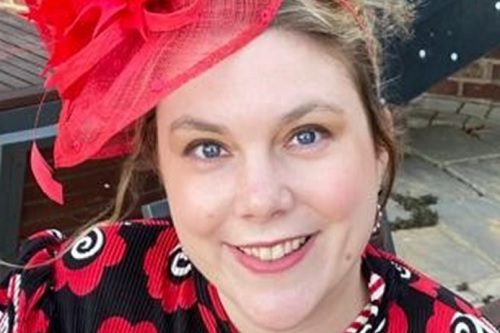Joining RSA with a disability and chronic illness by Rebecca Kudyk

Authored by RSA
Being the new person at any organisation is always a nerve-racking time. There is so much to learn, first impressions to make and new colleagues to get to know. Imagine when on top of that, you have a chronic illness and disability to contend with. Not only do you have the physical limitations and symptoms to manage, but also the worry around how your illness and disability will be perceived by your new colleagues and managed by your leader.
I am just a few months into my career at RSA, having spent a decade at the FCA, surrounded by familiarity and people that knew me. I have Osteoarthritis (at 25, I was told I had the knees of a pensioner), Fibromyalgia and Myalgic Encephalomyelitis, or ME. I am also a mum to a lively and wonderful 3-year-old boy. That’s a lot of plates to spin.
From the moment I first interviewed for my role at RSA, I felt empowered to be authentically me, disability and all. It can be daunting to stick your head above the parapet and tell an interviewer or new boss about your chronic illness or disability, but from that first conversation I was able to openly discuss my disability and limitations, as well as any reasonable adjustments I would need for the interview. I was able to show RSA what I could bring to the table, without the worry of my disability being used as a negative factor against selecting me for the role.
This continued into the first few weeks in the role. On one of my first days, my leader sat me down and asked me what I needed in order to be at my best in my new role. Not only were my concerns listened to with genuine interest, but they were actioned. It was refreshing and empowering. They were also formally recorded in an RSA Ability Wellbeing profile.
This document asks you to list your support needs and suggested reasonable adjustments in relation to mental and physical illness, as well as signs for your leader to look out for (in you personally) that could signify that you are beginning to suffer. This is vital, as your needs are recorded formally, which is transferrable should your management change. Re-hashing the same story to each manager you have, with different ways of managing disability and chronic illness, is NOT fun!
For me, the key is to be proactive when speaking to colleagues with chronic illness or disability, whether they are new to RSA or not. When I say proactive, I mean not assuming that employees will openly talk about their struggles with chronic illness and disability, alongside a presumption that if they don’t speak up, they’re fine.
For a long time, the onus has always been on the employee to speak up if they have any concerns. However, in my opinion, it is the role of the employer to build and develop a culture that empowers the employee to speak up about their concerns in the confidence that they will be listened to and not judged. I can whole-heartedly say that RSA is fantastic at this, and the culture of support and comradery I have felt since being here is palpable.
I have also joined the Employee Resource Group – RSA Ability – a fantastic group created to “build, champion and promote a culture within RSA where individuals with both seen and unseen disabilities have access to the support and workplace adjustments they need to enable them to flourish, develop and thrive each day”.
Joining RSA Ability gives me a platform to share my views and ideas and help others who are suffering. However, joining a group isn’t everyone’s thing and that’s ok. The group also acts as a support to anybody who reaches out for support, so you don’t have to navigate the world of disability, mental health or chronic illness on your own. If in doubt, reach out to us and we will be happy to help and support you.
Thank you to RSA for allowing me to be my authentic self at work, despite my physical disability and chronic illness. Long may it continue.





